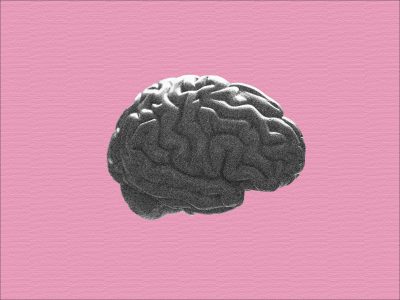Forgetting, to some extent, is part of human nature. Where did I leave my keys? Did I tell my mom about this already? Most of our brains are

incapable of grasping every single detail.
“The Memory Police” by Yoko Ogawa takes this thread and spins it into a poignant novel about memory. The story eloquently captures the reality of moving forward, continuing forward, which isn’t always rainbows and butterflies.
In Ogawa’s 1994 novel, the characters live on an island, governed by an authoritarian police state. Things unexpectedly disappear in ther town: perfume, bells, emeralds, ribbons, stamps and birds. Once these objects vanish, most citizens lose their memories surrounding the item.
The totalitarian government ensures that these relics stay forgotten, forcing the remnants of the bygone objects to be burned and destroyed.
This concept is best illustrated by the line: “The island is run by men who are determined to see things disappear. From their point of view, anything that fails to vanish when they say it should is inconceivable. So they force it to disappear with their own hands.”
People are often interrogated and taken into police custody without reasoning. Under this regime, they’re forcefully silenced and presumably killed.
According to her interview with the New York Times, Ogawa had not “intended to write a political allegory.” But this is where the success of the book lies: in its ability to comment on the enduring human spirit in the face of police brutality.
The oppressive status quo is often questioned, characters commit subtle acts of rebellion and the truants celebrate key milestones. The narrative parallels how real life operates under an oppressive regime — it’s not realistic to expect everyone to transform themselves into Katniss Everdeen.
We celebrate heroes naturally — monumental and tragic things happen to ordinary people — and drastic action is often infeasible. Revolting against an oppressive regime means facing extreme consequences and could entail enormous loss.
“The Memory Police” illustrates this power play between an authoritarian government and the desperation of its citizens. Totalitarianism, unsurprisingly, disregards selfhood and is strikingly discordant against our fundamental you-can-do-anything American bravado. By imposing a collective identity, as demonstrated in Ogawa’s story, it becomes easier to control a population.
Ogawa’s novel explores totalitarianism through memories. When the stories disappear from the island, the protagonist — a novelist — finds a chunk of herself missing. Her former ability to craft imaginative literature disappears. She can barely write a one-sentence story. Her selfhood is stripped.
When the memory of her left leg disappears, her physical body is also impaired. When we lose our memories we lose ourselves. The makeup of our identity is forged from our experiences — we’re the byproduct of what we’ve lived through.
It’s frightening to think about that being taken away.
Despite how many things disappear from the island and the exorbitant degree of loss, Ogawa ends with a critical sentiment to remind us about the importance of having hope — “I have to make do with a hollow heart full of holes.”























































































































